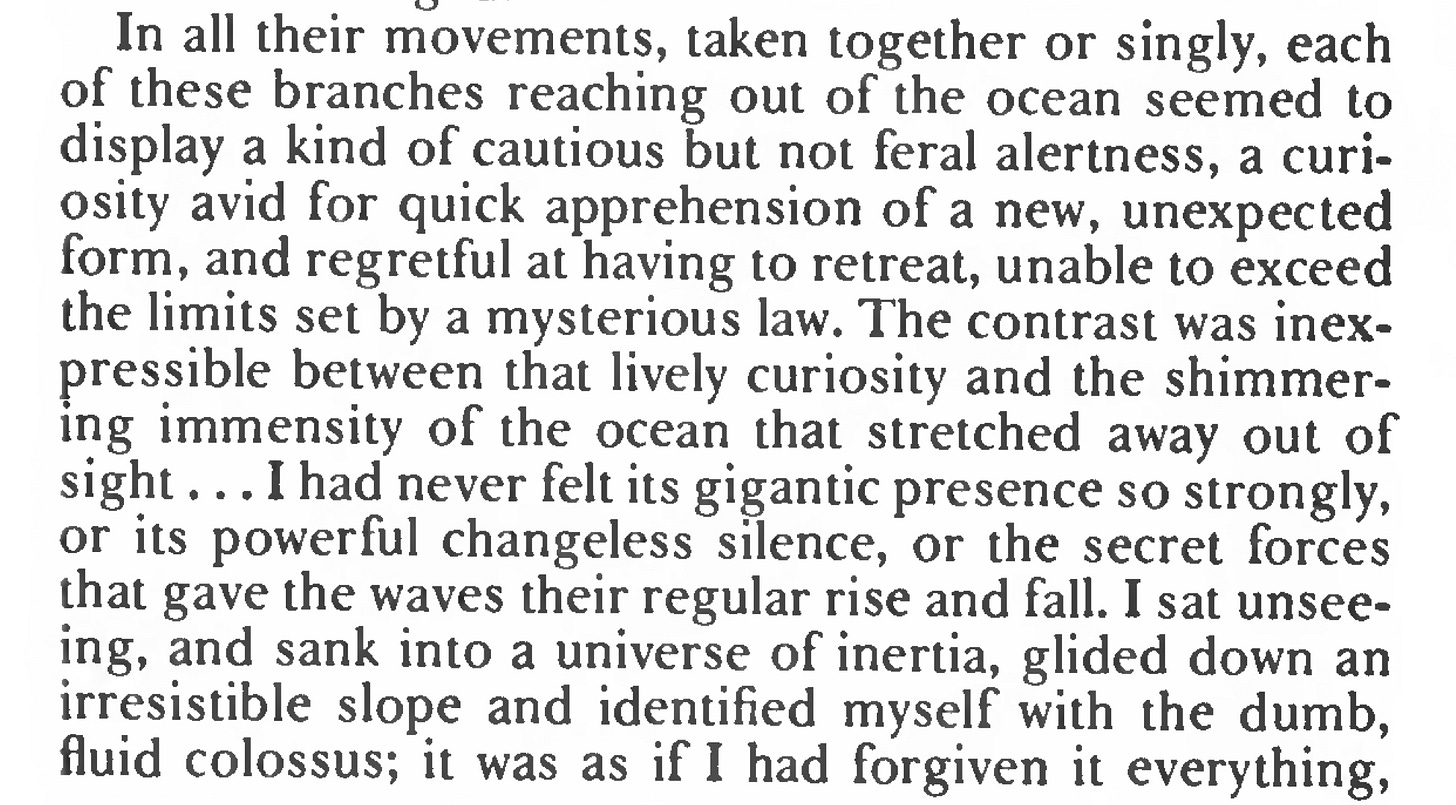What is it like to be a Planet? Part II

It was fun reading Solaris; I was sucked in at the very beginning and finished most of the book in one long sitting. The truly alien atmosphere, the apparitions and their psychotic influence on Kelvin and his fellow men (yes, they are all men) and a planet that seems to mess with their lives without any malice — all make for a gripping read.
Does it make Solaris a novel of ‘Second Contact’?
Not for me. I’ll be honest with you: I still don’t know what’s the sentient being in Solaris. Is it the planet itself? Only its ocean? There’s very little about the sentient ocean/planet in a book about the sentient ocean/planet. Every so often, you have passages such as:
It’s descriptive prose, but not clear what it’s describing. I am sympathetic to the challenge. Imagine a curious bacterium journeying up my throat and chancing upon my brain. It’s this wondrous place with electrical fireworks and furious activity. Every once in a while the bacterium is visited by organelles that seem to be performing a function. But what function? And does all this action add up to anything? Nothing at the scale of the bacterium or even a thousand times bigger will answer these questions.
Like the bacterium, Lem is stuck with the intuition that there’s a there there but unable to transcend the barrier and make sense of the other. There’s a long human history of this sort of confrontation - not with aliens but with divinity. In many religious traditions, the divine is the ultimate other, incapable of supporting any positive descriptions. Negative theology - like the Upanisadic ‘Neti Neti,’ “not this, not this,” - is an expression of profound faith and profound despair.
Perhaps that’s the best we can do when confronted with an alien intelligence.
But how do we know the alien is intelligent? How do we know there’s God? To the faithful, all manifestation is a sign of God’s existence but there’s nothing there which would satisfy a skeptic. There’s something in us that lives in the shadow of the ultimate other but to give it form as divinity or alien might be a mistake.
Lem has an even harder problem: he is not a theologian but a novelist and he has to salvage comprehension out of confusion.
Is that why he plays a magician’s trick on us, turning alien encounter into a love story?
Kelvin’s dead love returns as a Solarian.
The heart of the book isn’t about Solaris at all, but about the encounter between Rheya and Kelvin, which is a little bit about Rheya and the super high tech that’s created her out of Kelvin’s memories. What the book accomplishes is a gradual uncovering of Kelvin’s humanity. I suppose that’s a good thing: since the only grasp you have of the other is through your own projections - and even the apparition is literally a manifested projection - you might as well use the encounter with the other to know yourself.
Who is she? Is she real? Why is Solaris manifesting these apparitions? Do they live happily ever after? You’ll have to read the book to know the answer, but this part of the book is firmly within the known unknown.






